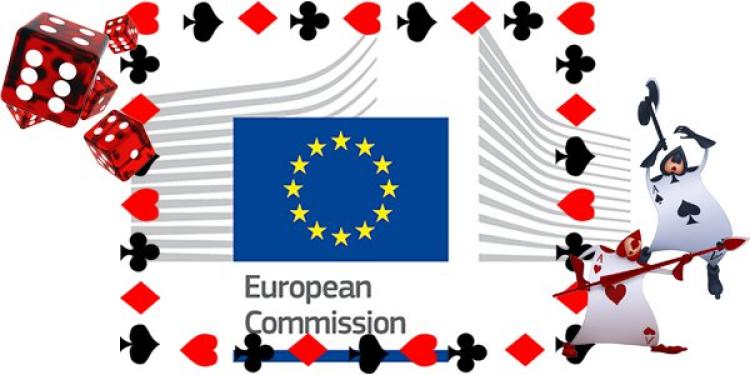EC Sets New Guidelines for Regulating Online Gambling
Posted: August 7, 2014
Updated: October 4, 2017

The European Commission says protecting minors and restricting advertising are the most important factors to consider when regulating online gambling.
Three main points are included in the European Commission’s (EC) non-binding recommendation: the importance of protecting minors, some restrictions on advertising, and ensuring the provision of basic information on gambling websites. These are the main issues member states should have in mind when adopting new online gambling laws, the EC said.
Entitled “Principles for the protection of consumers and players of online gambling services and for the prevention of minors from gambling online”, the document was adopted earlier in July and aims to streamline rules across member states, as well as to encourage cooperation between them.
Key points for online gambling laws
Online gambling sites in the European Union:
• TitanBet
• Mr. Green
• ComeOn! Casino
• Bovada
• Casino440
With internet gambling constantly growing and expanding in the European Union, rules and regulations often vary at a national level. But there needs to be some consistency in the policies adopted by member states, and this is why the EC has approved some general recommendations for everyone to follow.
Along with these, the EC has completed an impact assessment and a behavioral study on online gambling, in order to establish adequate measures for the sake of consumer protection. Across the EU, online gambling is mostly a recreational activity. However, between 0.2% and 3% of the population suffers from gambling addiction. Officials believe minors are particularly vulnerable and need to be protected.
According to the document adopted by the EC, European gambling laws should pay extra attention to the principles of information requirements, protection of minors, player registration and accounts, player activity and support, time out and self-exclusion, commercial communication, sponsorship, and last, but not least, education and awareness. Each of these are detailed in the document.
Informing customers and protecting minors
The recommendations apply to all forms of online gambling, which are defined as any service involving placing money on all games of chance, including lotteries, casino games, poker and betting transactions.
First off, members states should ensure that consumers have access to all the information they need about the operator, age restrictions, and about the potential harmful effect of gambling. Responsible gambling policies and help lines should also be displayed, in case players need more information or assistance, and terms and conditions should be concise and legible.
The Commission believes gamblers should not be allowed to play unless they’ve registered an account with the operator. Users are required to provide their name, address, date of birth, as well as a valid email address and mobile phone number.
All online gambling sites in the European Union should take measures to prevent minors from playing. When advertising their products, gambling companies should make sure their campaigns are not targeted at kids and teenagers, and that the adverts don’t reach them either.
Verifying user identity and protecting their funds are also among the basic requirements outlined in the document, along with the recommendation to propose deposit and temporal limits by default. Players should also be able to opt for “time-outs” and self-exclusion.
Advertising internet gambling in Europe
“Commercial communication” refers to all forms of communication designed to promote an operator’s services or image. In other words, adverts or marketing campaigns. These messages should also warn consumers about the risks of gambling addiction.
Companies must not target vulnerable players in their commercials, or make unfounded statements about chances of winning. Portraying gambling as socially attractive, suggesting that it can be a solution to any problems or an alternative to employment are also forbidden.
All sponsorship agreements should be transparent, meaning that when a casino company decides to support an event, the operator should be clearly identifiable as the sponsoring party. Just like in the case of commercial communication, sponsorship deals, promotional material or merchandise should not target, affect, influence minors.
The Commission recommends that all these measures should be accompanied by regular educational programs. Member states have to organize and promote campaigns, to raise public awareness about the potential risks of gambling.
Regulatory bodies to implement safety measures
The EC also requested of each member states to appoint competent gambling regulatory authorities. These will be responsible for ensuring that national measures are aligned to the principles set out in the Recommendation. It is important that all EU member states fully comply with the new consumer safety and advertising policies.
Member states should inform the Commission about the measures taken 18 months after the Recommendation’s publication. The Commission will then evaluate the measures taken by member states.












